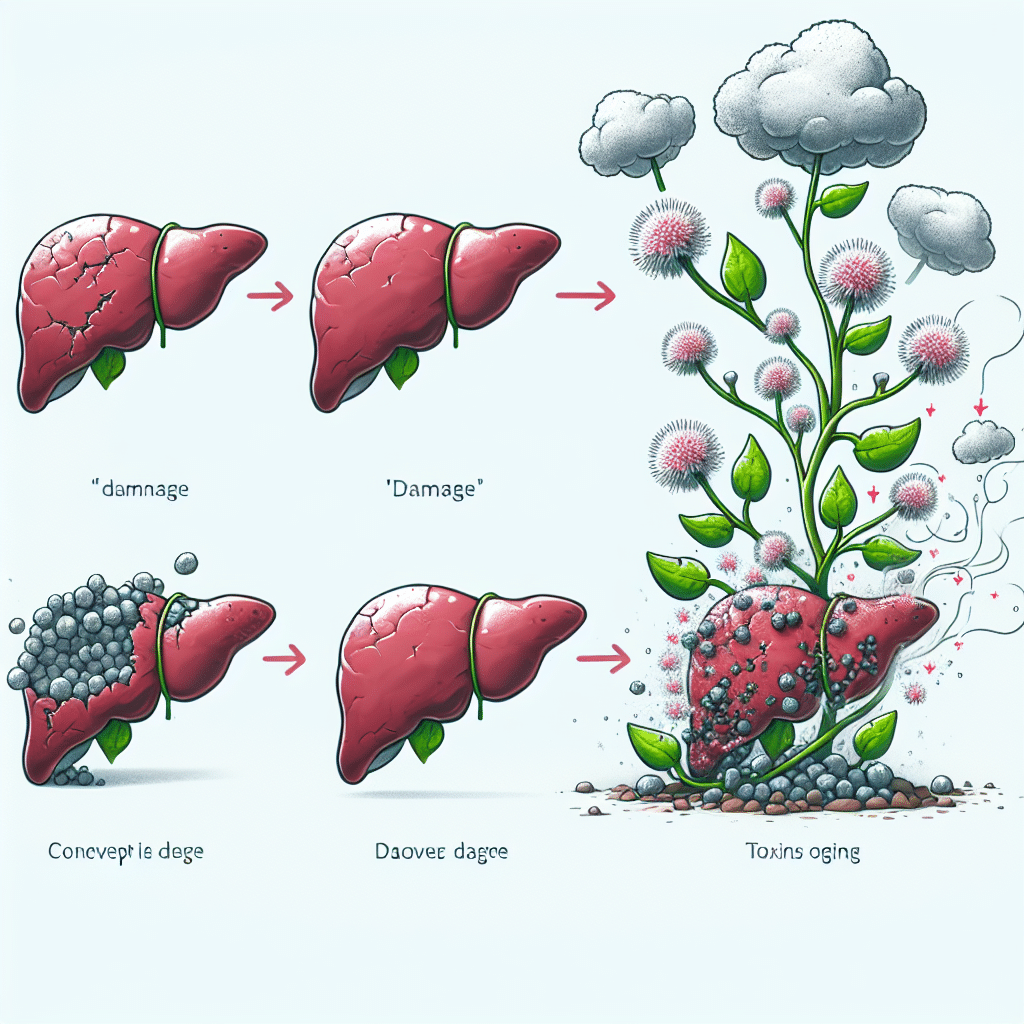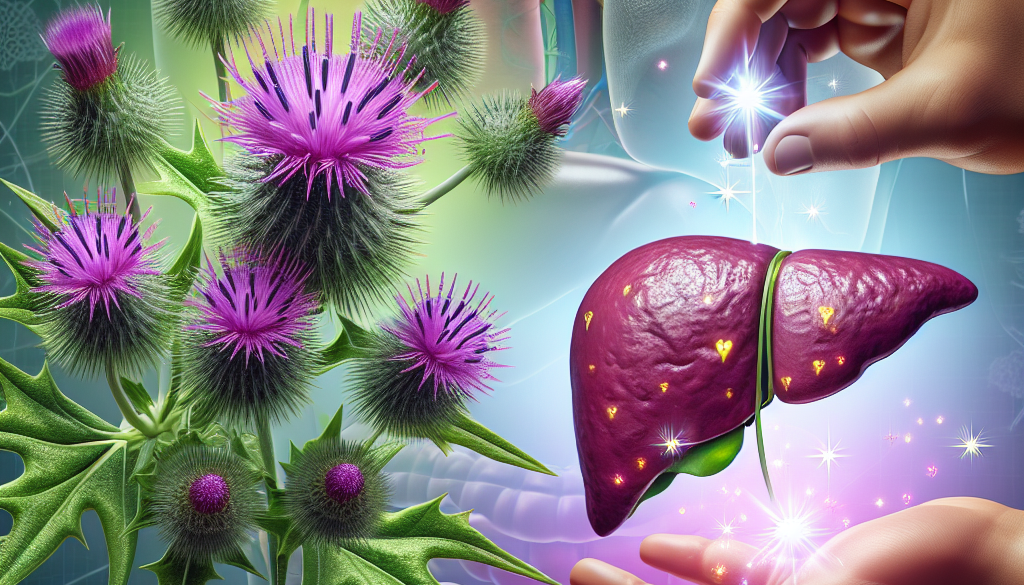Can milk thistle reverse liver damage?
-
Table of Contents
- Milk Thistle and Liver Health: Can It Reverse Damage?
- Understanding Liver Damage
- What is Milk Thistle?
- The Science Behind Milk Thistle and Liver Regeneration
- Case Studies and Clinical Trials
- Limitations and Considerations
- Real-Life Success Stories
- Statistics on Liver Disease and Milk Thistle Usage
- Conclusion: Weighing the Evidence
- ETChem’s Protein Products: Supporting Liver Health
Milk Thistle and Liver Health: Can It Reverse Damage?

Liver health is a critical aspect of overall well-being, and the quest for natural remedies to support and potentially reverse liver damage is ongoing. Milk thistle, a herbal supplement, has been at the forefront of this quest. This article delves into the potential of milk thistle to reverse liver damage, examining scientific evidence, case studies, and statistics to provide a comprehensive overview.
Understanding Liver Damage
The liver is a vital organ with a wide range of functions, including detoxification, protein synthesis, and the production of biochemicals necessary for digestion. Liver damage can occur due to various factors such as alcohol abuse, hepatitis, fatty liver disease, and exposure to toxins. The consequences of liver damage can be severe, leading to conditions like cirrhosis and liver failure.
What is Milk Thistle?
Milk thistle (Silybum marianum) is a plant native to Mediterranean countries. It has been used for over 2,000 years as a natural remedy for liver and gallbladder disorders. The active ingredient in milk thistle is a group of plant compounds collectively known as silymarin, which is believed to have antioxidant and anti-inflammatory properties.
The Science Behind Milk Thistle and Liver Regeneration
Research into milk thistle’s efficacy for liver health has yielded mixed results. Some studies suggest that silymarin can protect the liver from toxins, promote the growth of new liver cells, and reduce inflammation. However, other studies have not found a significant benefit.
- Antioxidant Effects: Silymarin has been shown to increase the levels of glutathione, a potent antioxidant that helps protect liver cells from damage.
- Anti-inflammatory Properties: Milk thistle may reduce inflammation, which is a key factor in liver disease progression.
- Enhancing Liver Regeneration: Some evidence suggests that milk thistle can stimulate protein synthesis in the liver, aiding in the regeneration of damaged liver cells.
Case Studies and Clinical Trials
Several clinical trials have investigated the effects of milk thistle on patients with liver diseases. For instance, a study published in the “Journal of Hepatology” found that milk thistle improved liver function in patients with alcoholic liver disease. Another study indicated that milk thistle might benefit patients with cirrhosis, although the improvements were not statistically significant.
Limitations and Considerations
While some research is promising, there are limitations to the current understanding of milk thistle’s effects on liver health. The quality of the studies varies, and many have small sample sizes or lack control groups. Additionally, the dosage and duration of milk thistle treatment can vary, making it difficult to draw definitive conclusions.
Real-Life Success Stories
Anecdotal evidence from individuals who have used milk thistle suggests some have experienced improvements in liver enzyme levels and overall well-being. However, these personal accounts should be taken with caution as they are not scientific evidence.
Statistics on Liver Disease and Milk Thistle Usage
Liver disease is a growing health concern worldwide. According to the World Health Organization, liver cirrhosis is responsible for 1.3 million deaths per year globally. The use of milk thistle as a complementary therapy is widespread, with the National Center for Complementary and Integrative Health reporting that millions of people in the United States use it for liver conditions.
Conclusion: Weighing the Evidence
In conclusion, while milk thistle has shown potential in supporting liver health and possibly aiding in the regeneration of liver cells, the evidence is not conclusive. High-quality, large-scale clinical trials are needed to determine its efficacy and safety. Individuals considering milk thistle for liver issues should consult with healthcare professionals before starting any new supplement regimen.
ETChem’s Protein Products: Supporting Liver Health
For those looking to support their liver health through dietary supplements, ETChem offers a range of high-quality protein products. Protein is essential for liver function, and ensuring adequate intake is crucial for those with liver concerns. ETChem’s collagen products, including marine, fish, bovine, and chicken collagen, provide a neutral-tasting, instantly soluble protein source that can be easily incorporated into a liver-friendly diet.
About ETChem:
ETChem, a reputable Chinese Collagen factory manufacturer and supplier, is renowned for producing, stocking, exporting, and delivering the highest quality collagens. They include marine collagen, fish collagen, bovine collagen, chicken collagen, type I collagen, type II collagen and type III collagen etc. Their offerings, characterized by a neutral taste, instant solubility attributes, cater to a diverse range of industries. They serve nutraceutical, pharmaceutical, cosmeceutical, veterinary, as well as food and beverage finished product distributors, traders, and manufacturers across Europe, USA, Canada, Australia, Thailand, Japan, Korea, Brazil, and Chile, among others.
ETChem specialization includes exporting and delivering tailor-made collagen powder and finished collagen nutritional supplements. Their extensive product range covers sectors like Food and Beverage, Sports Nutrition, Weight Management, Dietary Supplements, Health and Wellness Products, ensuring comprehensive solutions to meet all your protein needs.
As a trusted company by leading global food and beverage brands and Fortune 500 companies, ETChem reinforces China’s reputation in the global arena. For more information or to sample their products, please contact them and email karen(at)et-chem.com today.




